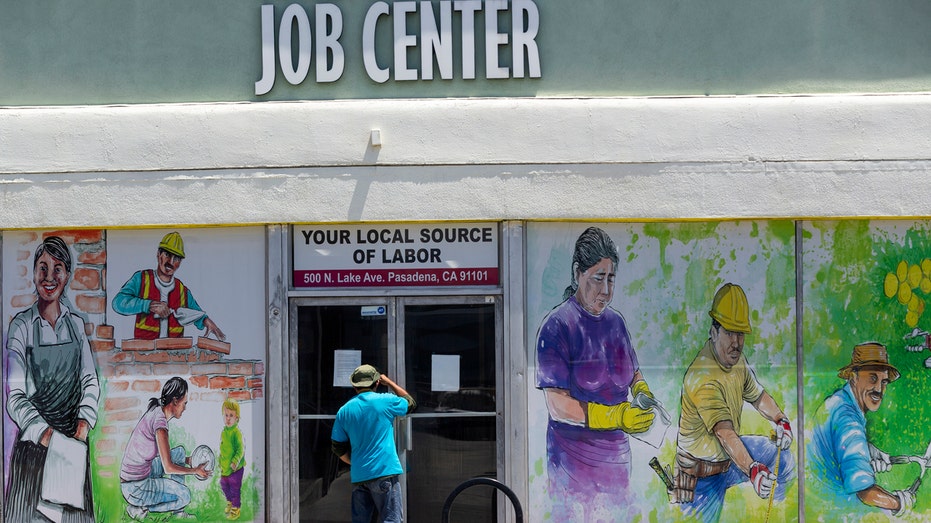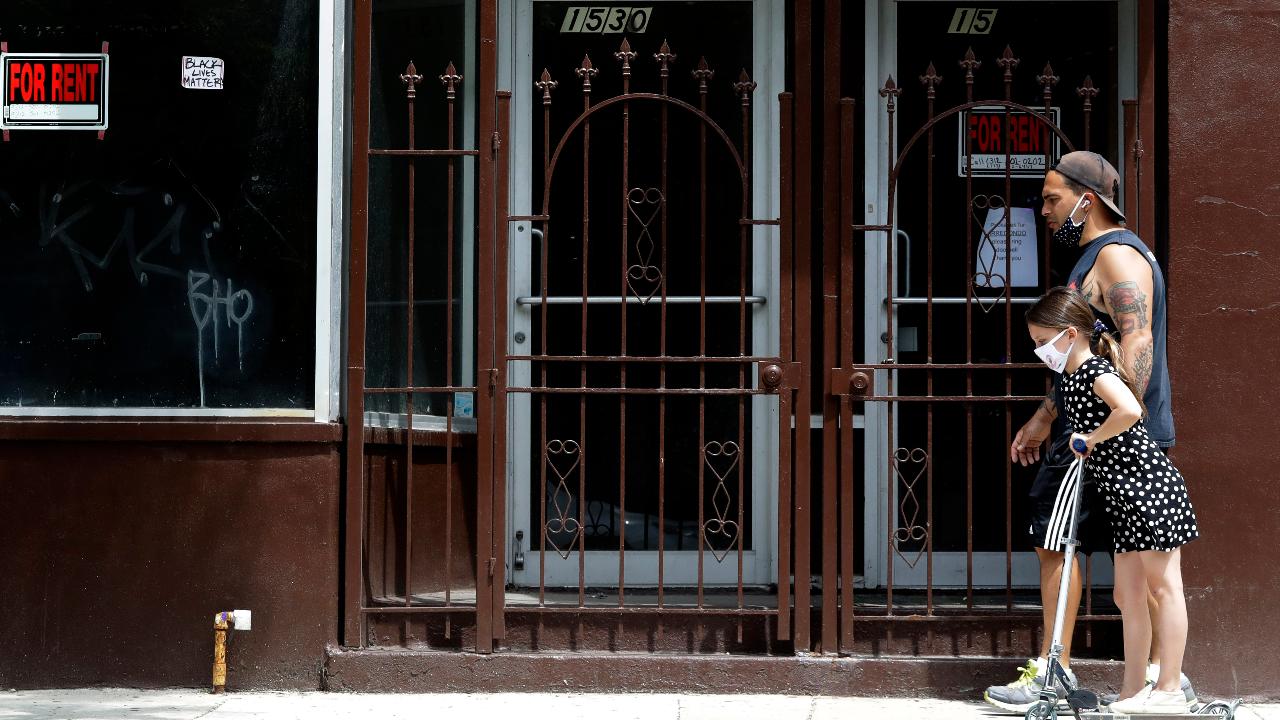Bankruptcy is extra burden for some job seekers
Private employers can't fire someone for seeking bankruptcy protection, but they can turn away an applicant on that basis
WASHINGTON -- Hundreds of thousands of Americans who have lost their jobs during the coronavirus pandemic could be confronting an added barrier as they seek to rejoin the workforce: a bankruptcy on their record.
Federal law allows private employers to turn down a job applicant because of a past bankruptcy filing, which employers can ask about on a job application or learn about through a credit check.
Some business groups support the practice, saying there are instances when the information is relevant, such as in hiring for positions that handle money.
EXTRA $600 IN UNEMPLOYMENT BENEFITS ENDS NEXT MONTH, WHAT HAPPENS THEN?
Consumer advocates disagree, saying bankruptcy isn't necessarily a sign of financial recklessness, but rather is frequently the unintended consequence of health problems or a divorce -- or this year could involve a business done in by the pandemic.
"There are millions of people, some who may have to file for bankruptcy as a result of [the pandemic], that could be adversely affected when they try to re-enter the job market," said Tara Twomey, executive director of the National Consumer Bankruptcy Rights Center.
While it isn't clear how many of the 21 million people currently unemployed may have filed for bankruptcy, University of Illinois at Urbana-Champaign law professor Robert Lawless says the number could exceed 750,000 based on his estimate that at least 3.6% of the U.S. adult population has filed for bankruptcy in the last 10 years.
CONGRESS HAS FUNNELED TRILLIONS TO CORONAVIRUS RELIEF. WHERE IS THAT MONEY GOING?
An average of about 800,000 people filed for bankruptcy annually during the last five years, a figure that is expected to rise as the U.S. economy falters.
Upsolve, a nonprofit with software for filing for bankruptcy without a lawyer, has seen the share of its users who are unemployed rise to 26% in May from 18% in January. Forty-two percent of users who blamed their bankruptcy on job loss said the coronavirus was the cause.
Ms. Twomey said she expects the disagreement between business groups and consumer advocates to intensify.
Jessica Foxworthy, an accounting major at Boise State University in Idaho, filed for chapter 7 bankruptcy protection in March after her waitressing income dropped when she moved from a tourist hub to attend school.
Ms. Foxworthy said she understands why an accountant's prospective employer would want to know about a past bankruptcy, but she also thinks a job applicant who cleared debts in bankruptcy would face less temptation to commit fraud.
FED'S POWELL WARNS 'SIGNIFICANT' NUMBER OF AMERICANS COULD REMAIN UNEMPLOYED AFTER VIRUS RECOVERY
"In general, it doesn't seem fair that they should be able to discriminate based on something you're legally allowed to do," she said. "I want to be able to get a job on my merit, not on my past."
Rep. Katie Porter (D., Calif.) said the law should be changed to ban employers from considering an applicant's bankruptcy record in the hiring process.
"No evidence supports a relationship between being a hardworking, strong-performing employee and a past history of financial problems," she said in an email. "This is even more true as much consumer debt comes from medical bills or lost work due to illness or injury, not profligacy of any kind."

FILE - In this May 7, 2020 file photo, a person looks inside the closed doors of the Pasadena Community Job Center in Pasadena, Calif., during the coronavirus outbreak. California's unemployment rate continued to climb in May, reaching 16.3% as busin (Associated Press)
Private employers can't fire someone for seeking bankruptcy protection, but they can turn away an applicant on that basis, legal experts say. After the 2008 economic recession, some rejected job applicants challenged the law. Federal appellate court rulings have upheld the right of private employers to consider a bankruptcy filing. That means it would take congressional action to ban the practice, experts say.
HALF OF AMERICANS SAY CORONAVIRUS HAS IMPACTED THEM FINANCIALLY
In the legal challenges, the National Association of Consumer Bankruptcy Attorneys urged the federal judges to rule in favor of the job applicants, saying that society doesn't benefit from "the cycle of unemployment and financial struggle that results from employers taking such discriminatory actions."
By law, governments at all levels can't consider a prospective employee's bankruptcy in hiring decisions. But that doesn't apply to the private sector, which accounts for about 84% of jobs.
In January, the House of Representatives passed legislation that would prohibit employers from using credit reports when hiring, with some exceptions such as jobs requiring national-security clearance. The measure has stalled in the Republican-led Senate.
The U.S. Chamber of Commerce opposed the legislation, saying in a letter to lawmakers that it would "make it more difficult to hire for sensitive positions or would otherwise delay the hiring process."
US BANKS HAVE GROWN BY $2T IN DEPOSITS SINCE PANDEMIC STARTED
Since 2007, more than 10 states, along with major cities like New York City and Philadelphia, have passed laws restricting the use of credit checks in most employment decisions. The bans came after elected officials said those screenings unfairly penalize certain applicants, including minorities.
Such bans prevent employers from seeing a bankruptcy filing on a credit report, where such filings can appear for up to 10 years. The rules don't bar employers from asking job candidates directly whether they had ever filed.
Some consumer-bankruptcy lawyers said their clients haven't had a problem getting a job during the tight labor market of recent years. But with unemployment now at record levels, some people who have used bankruptcy to get a fresh start are worried about its consequences.
"If anything, they should hire you because you're trying to take a step to make positive changes in your life," said Lakeisha Patterson, 40 years old, who filed for bankruptcy in March when her debts mounted while she struggled to find a job after moving to Mississippi.
Despite her financial record, Ms. Patterson said she was recently hired for a job in tech support.




















